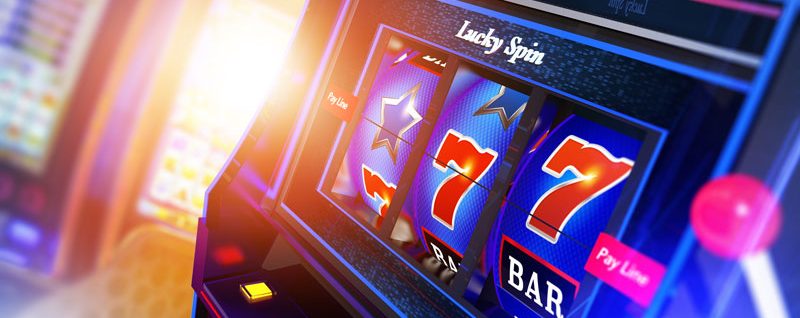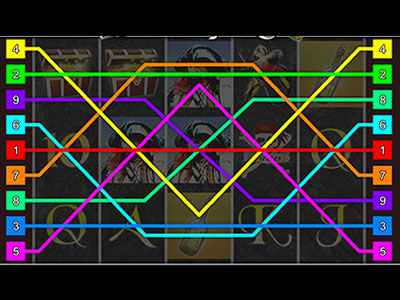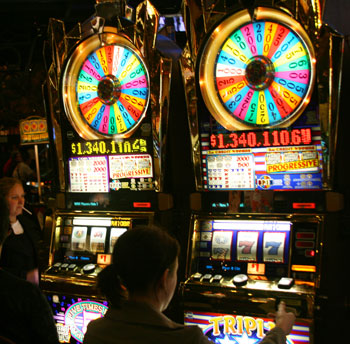
Hundreds of thousands of pokie players ask themselves the same question every day — how to know when a pokie machine will pay out? In this article, we talk about strategies and giveaways which can help you maximise your winnings.
When Do Pokies Pay Out: Picking Your Battles
Some people love long walks on a beach, others enjoy rooftop sunsets. Us Aussies, we love us some pokies! Australia is a country with the most pokie players in the world, and it almost feels weird walking into a bar and not hearing the reels turning.
Now, we’ve all had both winning nights and sessions to forget. So what determines when we’ll win and is there any way to predict the outcome? Well, in short, not really. Whether you’re a fan of online gambling or you’re just hitting a few spins with your mates, all pokie machines give out random results. So, in essence, it does come down to luck.
However, you can make your own luck if you know when and where to bet. Although there’s no guarantee you’ll win, you can significantly increase your chances of winning if you follow the advice we’re about to give you. But first of all, you need to know how slots work.
Return to Player
So what’s RTP and what does it do? An RTP determines how often a slot game will pay out. In Australia, land-based pokies have a law-determined minimum RTP of 85%, and they usually go up to 90%. On the other hand, online pokies offer a greater advantage to players — their RTPs are 92–97 per cent. With an RTP of, say 95%, online casinos promise that players will receive $95 for every $100 wagered over a large number of spins. This, however, is measured long term, and it doesn’t mean, as you know, that you’ll walk away with something every time. So before you start playing a particular pokie game, always check its RTP. Otherwise, you could be shooting yourself in the foot.
 Volatility
Volatility
Pokies with higher RTP offer players more winning rounds, but the payout is usually smaller. This is what we call a low-volatility slot. On the other hand, a pokie with high volatility won’t pay as often, but when it does, it’s a big win. So picking volatility is down to your preference. If your aim is to win some money with low risk involved, low volatility is the way to go.
Random Number Generator
Regardless of whether you play online or in a local casino, all pokies, new and old, work with a Random Number Generator. The RNG is a system which makes sure that each and every outcome of a pokie game is genuinely random. It’s an independent mechanism which won’t fall for any of your ingenious bluffs and strategies.
In a nutshell, RNG is constantly going through various numbers in no particular order. And once you hit the spin button, RNG stops and throws out a certain number. That number decides which positions the reels will stop at, and you’ll know whether you’ve hit a payline or not. So if it’s always completely random, can you anticipate a payout? The correct answer is — maybe.
Doctor, My Pokie’s Feeling Cold
Do you know that thing when you look at a box and you make out a face in it? That’s an instinct we’ve inherited from our living-in-the-woods, animal-hunting ancestors. Another thing our brain does uncontrollably is spot patterns in behavioural sequences. The same goes for pokie game outcomes.
You see, even in a randomly-generated data, there are trends or sequences. For example, go ahead and flip a coin. You can’t determine which side it’ll fall on, as it’s a random event. But if you do it a thousand times and log the outcomes, you’ll notice that occasionally, you receive Tails several times in a row, as well as a grouping of Heads.
The same thinking goes for slot machines. Our brain ‘sees’ these patterns. After a number of winning rounds, chances are the pokie will stop paying out, i.e., go into a losing cycle. And if it’s in such a losing streak we call it a cold pokie, while hot slots are the ones that are on a streak of paying out.
While this isn’t something you can live and die by, many experienced players track how much money their pokie neighbours put in and how much luck they’re having. If you see someone investing a lot and leaving empty-handed, you should hop in and play at their pokie, big wins might be just around the corner. Similarly, if you win a couple of rounds but then start losing, maybe it’s time you call it a day.
Progressive Jackpots
 If a pokie runs with a progressive jackpot, every time you spin a winless round, the jackpot value rises. Most of the casinos have a networked progressive jackpot, which means that all players contribute to the same pot. Just like in monopoly, when you all add money in the middle of the board. That sounds nice, especially when the jackpot reaches staggering heights.
If a pokie runs with a progressive jackpot, every time you spin a winless round, the jackpot value rises. Most of the casinos have a networked progressive jackpot, which means that all players contribute to the same pot. Just like in monopoly, when you all add money in the middle of the board. That sounds nice, especially when the jackpot reaches staggering heights.
But as you all contribute to the same money pool, all of you also have the chance of landing on that ‘free parking’ spot. The odds of that lucky bloke being you are lower than if you’re playing a pokie with standard bonuses.
Another disadvantage to progressive jackpots is the sheer fact that casinos are a business — they’re not there to hand out free money to unsuspecting passersby. Their goal is to make money off of their customers. As a consequence, the odds of hitting a progressive jackpot are extremely small. Add to that the fact that the regular payouts they give out are lower due to having an appealing jackpot, and you won’t spend much time cashing money out.
So Dismiss Jackpots Entirely?
Not all of them. Some slot machines have payout limits which they display publicly. You can walk into a casino and see a pokie that says something along the lines of “jackpot must be won between $1000–$5000,” or any other numbers — this is just an example. So you should wait for the jackpot to rise until $4500+ and then join the fun. The payout is bound to happen soon, and you can profit off of players who’ve spent hours building it up.
Summary
Always take into consideration which game you want to play. Picking the right game is crucial to ensuring that you get the best odds. After that, there are several strategies you can try out that might help you anticipate when pokies are going to give you the result you want. Just remember, always keep a cool head and know when to begin and when to stop.